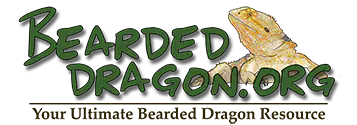hill202":g22rlees said:
kingofnobbys":g22rlees said:
Your vet needs to prescribe a suitable anti-parasitic drug , here are some recommended by Melissa Kampling
The antibiotic will have no effect on the coccidia parasites , it will help with the secondary infection caused by these parasites' activities in the beardie's gut.
Sulfadimethoxine is Albon. Sigh, you had me scrambling for a minute.
Yes, but the other isn't .
Results of a quick scientific literature search :
The modes of action of anticoccidial drugs are poorly understood. Some that are better known are described below. Knowledge of mode of action is important in understanding toxicity and adverse effects.
Amprolium is an antagonist of thiamine (vitamin B1). Rapidly dividing coccidia have a high requirement for thiamine. Amprolium has a safety margin of ~8:1 when used at the highest recommended level in feed (125–250 ppm). Because amprolium has poor activity against some Eimeria spp, its spectrum has been extended by using it in mixtures with the folic acid antagonists ethopabate and sulfaquinoxaline. The primary use of amprolium today is for oral treatment dissolved in water during clinical outbreaks.
Clopidol and quinolines (eg, decoquinate, methylbenzoquate) are coccidiostatic against early development of Eimeria spp by inhibiting mitochondrial energy production. Clopidol and quinolines have a broad species spectrum and are sometimes mixed together for synergism. However, resistance may develop rapidly during extended use.
Folic acid antagonists include the sulfonamides, 2,4-diaminopyrimidines, and ethopabate. These compounds are structural antagonists of folic acid or of para-aminobenzoic acid (PABA), which is a precursor of folic acid. (The host does not synthesize folic acid and has no requirement for PABA.) Coccidia rapidly synthesize nucleic acids, accounting for activity of PABA antagonists. Although resistance to antifolate compounds is widespread, they are commonly used for water treatment when clinical signs are already evident. Diaveridine, ormetoprim, and pyrimethamine are active against the protozoan enzyme dihydrofolate reductase.
They have synergistic activity with sulfonamides and often are used in mixtures with these compounds.
Halofuginone hydrobromide is related to the antimalarial drug febrifuginone and is effective against asexual stages of most species of Eimeria. It has both coccidiostatic and coccidiocidal effects, but coccidia may become resistant after extended exposure.
The ionophores (monensin, salinomycin, lasalocid, narasin, maduramicin, and semduramicin) form complexes with various ions, principally sodium, potassium, and calcium, and transport these into and through biologic membranes. The ionophores affect both extra- and intracellular stages of the parasite, especially during the early, asexual stages of parasite development. Drug tolerance was slow to emerge in coccidia, probably because of the biochemically nonspecific way these fermentation products act on the parasite. Recent surveys suggest that drug tolerance is now widespread, but these products remain the most important class of anticoccidials.
Some ionophores may depress feed consumption when the dosage is above recommended levels. Primarily, this is the result of reduced feed consumption, but the reduced growth may be offset by improved feed conversion.
Nicarbazin was the first product to have truly broad-spectrum activity and has been in common use since 1955. Although not completely understood, the mode of action is thought to be via inhibition of succinate-linked nicotinamide adenine dinucleotide reduction and the energy-dependent transhydrogenase, and the accumulation of calcium in the presence of ATP.
Nitrobenzamides (eg, dinitolmide) exert their greatest coccidiostatic activity against the asexual stages. Efficacy is limited to E tenella and E necatrix unless combined with other products.
Robenidine, a guanidine compound, allows initial intracellular development of coccidia but prevents formation of mature schizonts.
It is coccidiostatic when given short term and coccidiocidal long term. Drug resistance may develop during use.
Roxarsone is an organic arsenical compound. It has significant activity against E tenella and is used in combination with ionophores to improve control of that species. A withdrawal period is required.
Diclazuril and toltrazuril are highly effective against a broad spectrum of coccidia.
>>Diclazuril is used mostly for prevention at 1 ppm in the food.
>>Toltrazuril is used primarily for treatment given orally in water.
Your reptile / herp vet will be up to date and will know which combination of anti-coccidial meds are going to be effective for the stain of coccidia parasite infecting your dragon. At this point I moving beyond my biochemistry knowledge and I strongly suggest you seek professional vet advise.
I'll be bowing out.


